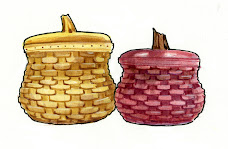- Away from "icebergs"
- Into a new world of librarianship
- To more powerful ways to cooperate
- To better bibliographic services
- To a temporary place in time
I thought it ironic that these perspectives, while updated, sounded a bit like Ranganathan's five laws of library science that have remained the centerpiece of our professional values. I scrambled to find my old textbook to re-read these values and see how far from his laws we are. Far, but still within the realms of his convictions. Libraries are still dedicated to the service of people. They always will be.
Ranganathan's laws were written at the time when only a physical library was conceivable. In 1995 Michael Gorman authored "Five new laws of librarianship", (American Libraries 26, 1995:784-785). These laws work well for the physical and virtual library. So much in fact, that OCLC's 5 perspectives seem to further expand on Gorman's ideas. One such "Gormanism" is to "respect all forms by which knowledge is communicated". Today's library has many packages of knowledge, and each package is its own life-form. Library workers should not fear these new forms of communication, but rather embrace them to advance library service. In Anderson's manuscript, "Away from "icebergs"", he suggests we need to push away from traditional practices and attitudes, and row towards a more progressive ideal. Library patrons are expecting libraries to "keep up" with technology.
Library 2.0 is creating change within the library structure. While it's important to "collect" subjects for patron use and research, it's also important to include the patron and/or researcher in the dialogue as to what they are wanting or needing in their respective collections. This is what I find important to the future of Library 2.0: open communication with the community.

No comments:
Post a Comment